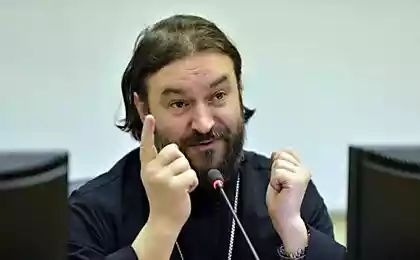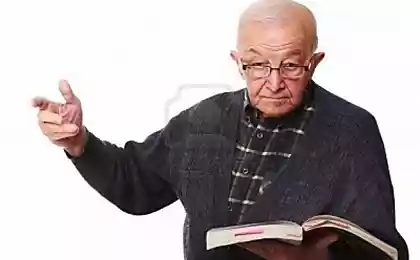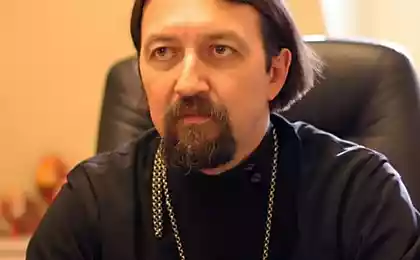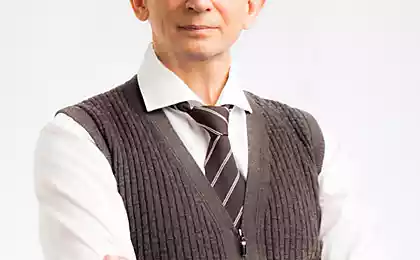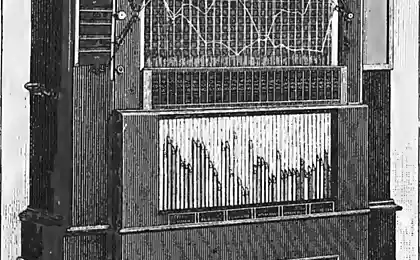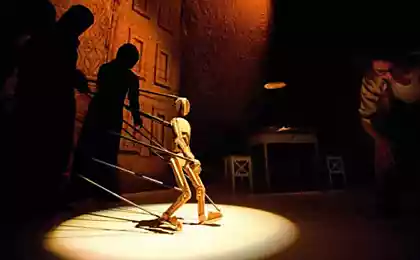606
Archpriest Maxim Kozlov : Very mediocre education
Archpriest Maxim Kozlov of accessibility of Universities and its effectsCan be whether the accessibility of universities is considered an unambiguous good? As is the situation with education in religious schools? What should parents do who are experiencing what will be taught or, conversely, do not teach their children to schools and universities? Talking about this with Archpriest Maxim Kozlov, Professor of the Moscow theological Academy, Secretary of the Commission inter-Council presence on issues of religious education and religious education.
The paradox of the cashier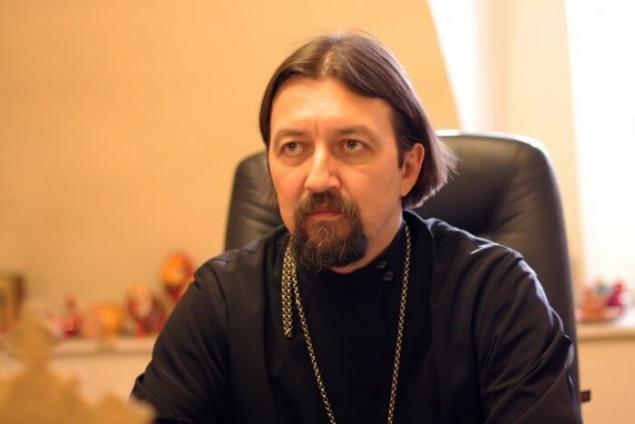
Archpriest Maxim Kozlov
— Father Maxim, as a teacher with much more experience, what do You see as the global trends in modern education?
— Not very easy to speak about global trends: see what's happening in Chinese education or, say, in Chile, but to some extent education trends in closer regions, in Europe or in North America, can be seen. And seen this: higher education is becoming part of education as such. That is, most young people in developed countries tend to receive higher education, come what may.
Is a negative or positive trend?
— I think that is negative, and here's why. Higher education is by definition elitist, not intended for everyone. Secondary — can be universal, although I doubt that in the form of odinnadtsatoye. But when it becomes universal higher education, it loses its essence and ceases to be what it should be — a kind of stage for those who can match that level of knowledge and professionalism. Then suddenly we decided that at the beginning of the twenty-first century, all young people are able to overcome higher education? This is possible only under one condition: by lowering the criteria. And they are down constantly, we require students in the universities are less and less! In other words, making higher education universal, we inevitably triggers its degradation — to a little better than average. This is especially noticeable in Central universities of the country, and, relatively speaking, the regional pedagogical institutes that now carry the proud name of universities. To come, to listen, to read the student work of these universities becomes sad. People get degrees, because that is awkward in our society to exist without it: if you're not a bachelor, you're some kind of subhuman! And in fact, this diploma means nothing. And, as I wrote a friend from the provincial town of N, "we now have all of the cashier in the store — higher education".
— Kind of awkward for the cashier to work, if you have a degree on hand...
— And more if there is nobody? About the Humanities can say quite clearly: we don't need more teachers, linguists, journalists, lawyers. There are so many workplaces for these professionals, so thousands of young people after University are managers in offices to sit. But below them there took needed linguistic, or historical, or philosophical diploma...
— Why the diploma has become so important?
— If to speak about our country, the reason is that the fallen prestige of the real work. Appeared quite the disparity between the cost of labor and its pay, there was the inadequacy of remuneration, when the person senseless for doing nothing in the office gets more than one who really works. I'm not talking about responsible people involved in business or government work, but, again, not so much, and they do have the right to earn big money. Talking about the huge mass of people that fill thousands of offices, or, say, watch over us. The number of Russian men who guard some Russian citizens from other, pathological. And the bus driver to go to work is awkward.
It turns out, people are going to get an education, not for education, and for pseudolocalization. People don't want to learn something, they want to get a diploma. And that those who want to learn, holding back. The situation is somewhat better in the Central of our universities, where in addition to the notorious exam saved an additional exam, which gives the possibility of a dropout.
I must admit that in General people are not all smart. They have other good qualities are, they need to develop, not hurting people a higher education.
— In Soviet times, so to speak, there was the prestige of working professions, and it was embedded in the ideology of the state. Now ideology, in fact, no-no, and someone needs to raise the prestige of honest labor as such, conventional professions? Or should not?
— In the Soviet Union was the appearance of prestige of working professions, and in fact the dream of parents to give the child a job where he can swing a hammer will not. And let it be enough money to, but in the office to sit. "Office romance" Ryazanov — a perfect illustration of what was a huge number of Soviet people: statistical office, various research institutes. People prefer to earn less money, but not to engage in physical labor.
I believe that the decrease in the number of universities by maintaining the best — it is the right trend in Russian education. Another thing, is it always performed on the correct criteria...
And however necessary the connection of higher education with the labour market, with the future employment of the people — at least in relation to the budget places. You need to leave the budget designated for those occupations that will be in demand, and those faculties whose graduates are not very popular, is to leave a number of places to learn the best, most capable, those who are willing to overcome high competition. What it is, if we, in the Moscow state University at the philological and philosophical faculty of the contest in the 3-4 in place? Yes, they should be 10-15 on a budgetary place — so that there really created a creative, intellectual environment like Oxford or Harvard.
And at the same time can give you an example. At Moscow state University in recent years have been created by the faculty of arts, where there are no budget places. There are girls from rich families give a good secular education: they teach a little literature, a little bit to draw, to play music, to dance, to sing, use the computer etc. Excellent education for a certain kind of classes! Let it be more flexible but paid. And the budget is where it is really necessary to society.
— As I understand it, it is still all ultimately comes down to a specific person and his motivations (or the motivations of his parents). As a Christian what should they aim for their children in the educational plan?
Christian, I think children should be restricted only in those activities that are directly sinful, or where the probability of falling into sinful community or a situation is very high. But otherwise the principle is universal, that for a Christian, that's just responsible parenting: don't hurt his own child with his authority, do not decide for him what's good for him. Try to see what he tends. And not just if dad is a lawyer, and the son should be a lawyer.
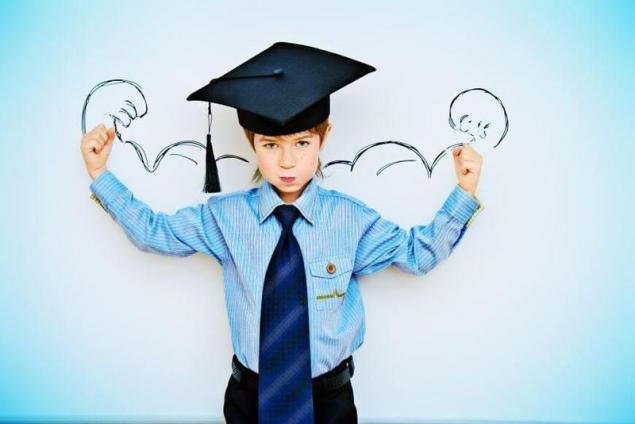
Students zero of course— You mentioned the information saturation of our time. It somehow affects the assimilation of information in the learning process?
— Yes, of course. Unfortunately, it shows. For the past 30 years I have been working in theological schools and meet regularly with the students of secular universities, so they can judge them. Lengthy semantic segments are digested with difficulty — this is "video clip" perception of reality.
— Easier to read an article than a book?
Yes. Modern young people do it is best to perceive the amount of information in the size of the monitor screen. When you need to move the screen with the mouse down or, God forbid, go to another page — it's harder. And if you need to read classic works of literature or philosophical treatise, people turn to different kinds of synopses, brief summaries. I know linguists who do not read a tenth of those works, which successfully passed the exams.
Why is it so? Because, again, among philologists, historians and philosophers a lot of people who are either not really needed or not.
— If higher education is to make more quality is on average positive affect?
— I don't know... In high school, I think, will be useful to high school to divide into flows, as in some countries is made. We have, at least in Moscow, is closer to the senior class stands out, the so-called gymnasium class, for example, "A", where there are additional items and classes, a normal class "B", where learning ordinary children, no matter what Grand claims, and class, where learning, or those for whom Russian language is not native, or those who are writing them are not very well mastered. In my opinion, the class actually need to separate. You need to create separate schools for children for whom Russian is foreign, because, in my opinion, it will increase the speed and quality of their training (and the same language, and literature, and cultural history of our country) and will pave the way for more rapid assimilation. And the first two threads need to share with those who can go to universities, those who are willing to receive secondary education, and those for whom nine or eleven classes is enough and they are ready to develop working skills.
— And what about the spiritual seminaries and academies. Unlike many universities, there just are people who know what they want. Are they negative trends, like the clip's thinking or focus on a diploma is not affected?
— Of course, affected. Definitely I can say that the situation of modern students is much harder than in the 1990-ies. She began to deteriorate in zero, and now, in the tenth, the regression became apparent. This is evident, first, that students come to the Seminary, much worse prepared, because the average knowledge level of high school graduates is falling steadily. It's more of a nationwide trend than the global. It is no coincidence that the Ministry of education last year was forced to lower the minimum passing score on the Russian language, otherwise there are too many high school graduates would have received the two — that is, would come out of schools with a certificate instead of a diploma. It happened because of tightened criteria to write off became more difficult.
Second, let's call a spade a spade: alas, in Seminary (maybe leave out the Moscow, St. Petersburg Academy and 2-3 educational institutions) today do not come best knowledge of the graduates of modern secondary school. The average entrant to the theological school is not a student, not a medal, but rather, a Trinitarian-ceteroni, if translated into our outdated system of points. It turns out that in almost all seminaries required a zero introductory rate. And the new curriculum, which is now approved by the Supreme Church Council and the Synod, suggests that for the vast majority of students the necessary fifth year of study, he is zero, which is not formally included in the scheme of the University, but it really is a part of the curriculum of bachelor. And that the zero rate we have to eliminate the flaws and defects of high school.
Yes, the seminarians go, understanding where and why you go, in contrast to, assume, from theological departments and faculties, which often get people who pursued the minimum passing score for the exam and for the comparative ease of study. And, by the way, for the young man admission to the University is also the possibility of the army not to go is a legitimate defense from the performance of military duty. Admission to the Seminary more self-conscious, but nevertheless everywhere there are screenings for disciplinary and other moments in the first two years... Because the man may think that he understands where and why they came, but then makes sure to squeeze into the framework of the hostel, to be in the exclusive University that not only forms, but also brings up very difficult.
— In General, the University must educate? To give some moral or ideological component?
Spiritual — Yes, of course. We assume that students of theological educational institutions, theological seminaries are called to be priests or Church workers. And it is certainly not a job but a Ministry by definition. To serve the need to educate. I assume that this applies to military academies, where not only is it important to give some skills, but also to create a readiness for self-restraint and sacrifice, without which this education is no good. I guess there is still some professions where it would not hurt the moral component, for example, medicine is a Ministry. Bad that medical schools are in fact not doing at present. And to say that the moral component should be in all universities, I'm afraid, because once we begin to educate, it turns into ideology and would lead to the profanation of the very idea of education. And the result will be the opposite: this kind of Allergy can cause students! One — conformism and hypocrisy, and others — absolute Allergy. And the higher the perceived educational, moral and Patriotic ideals, the stronger will be their profanation.
What to do with the TV?— Father Maxim, one gets the impression that everything is bad. Everything is bad and unprecedented in the history of such was not: education was kept at a high level, and the last 10-20 years are simply falling apart...?
— No, I don't want to say that everything is bad. And, moreover, I don't want to say that it was all good in the Soviet school: don't forget the fantastic her excessive organization just and middle and high school — do not forget all these ideological discipline, force input, consuming a huge amount of school time pupils and students. Forced collectivism, which has decimated the spikes that rose above the average level, because, they say, why are you here, fool, protrude? Especially if it was not just "a fool", which is able 5 to answer, and people with some thoughts- not necessarily even in politics, just thoughts that do not coincide with the textbook. What I now fear, is the tendencies towards the introduction of a unified history textbook, unified textbook in literature, a unified whole. Yes, of course, should be uniform criteria for what students should know or students on the way out, but, of course, not one textbook, which all are obliged to follow, in which just could be the answer.
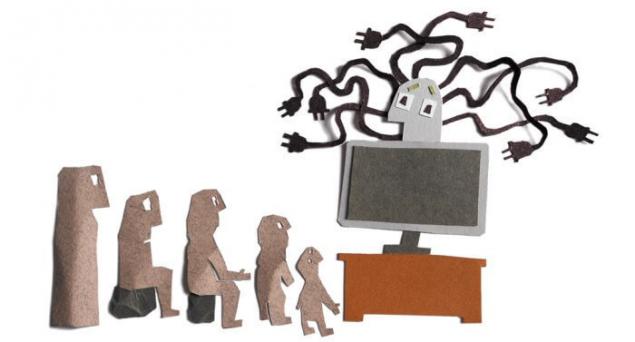
— It gives rise to a certain narrowness of thinking?
— Yes, and, moreover, is not formed the ability to function in a multicultural world. This means that a person is more difficult, in principle, to hear and accept an alternative point of view. After all, collectivism exists not only in the political sphere, so that now fear, but in the sphere of science, culture, any professional activity. Relatively speaking, academician Vernadsky at the time, "grass", not because were bad people, but because many were convinced that, in addition to point of view Lysenko, nothing right can't exist.
In any case, it seems to me that the position of the characteristic part of the teachers of the older generation that used to be all good and would leave as is, it is absolutely a dead end. Again, to start learning calligraphy writing ink pen, "we are not slaves, slaves not we", "mom soap frame"... it is Clear that much is not mechanically transferable. And the new?... I do not think, for example, that the introduction of the exam in itself is bad. Bad, if there is corruption element and when the tests on the subjects dealt in the mode the exam is composed, to put it mildly, not ideal. But it is clear that work on this is underway, the return of additional examinations, essays is very important. In normal multi-level written exam should give a much more objective picture than the oral examination to his teachers at his school. Remember — and I finished school in 1980 — just like he did their best students as the school needed the medals, which were kept at any cost as the least favorite teachers of the students received scores below those who earned it — and it was the same with exams. So to pass the final exam, not where you studied — correctly, in my opinion.
What are parents to offset some negative trends in the modern school?
— Again, do not say anything specifically Christian. First, to monitor the situation from the beginning: view from the first school taught your child, and do not delude estimates, because fours and fives are often very easy if to do before school.
— How to follow? Every day to check the lessons?
— No, just to talk, and then it becomes clear that the child knows and what not. He is capable, for example, to Express the story content or are unable to. Secondly, by anything to do with children. Another rule, in my opinion, to combat klipovoy consciousness is important — this is from my own experience: read. Read to children, then read along. If you have a home practice of reading aloud in the evening, before bedtime, is very supportive. Oh and of course: if the children see that the family has the skill of reading, if the book is not rare, and the parents themselves are not moved to the screens of gadgets, then this tradition will somehow be perceived. If you say that you need to read, and the book is missing anything your Board will not give. I say banal things, but I see that they are forgotten.
— Parents, take care of yourself!...
Yes. And... turn off the TV. "Zomboyaschik." Don't look neither domestic nor foreign, it's bad, it dulls it's obvious, everyone understands this, but continue to sit at screens. It is harmful, it is harmful because any movie or transmission every 15 minutes is interrupted. There are plenty of opportunities to watch a good movie without commercials. Harmful to listen to the news, because they excite the hatred towards a people, peoples, classes and so on. Throw the TV out of the house — is one of the finest educational tools. Of course, there are exceptional circumstances: I remember when there was the bombing of Yugoslavia, we watched the news, watched the events. But in everyday life the TV is not completely necessary.
And of course, it should just be a good person. Everyone knows those among his friends. By yourself can see, being a good person is not easy. Kindness, friendliness, attentiveness — not too common quality.
Finally, it is possible to call already that our main Christian that is related to education and indirectly, but very strongly projected to education. If parents pray — this is important educational principle which can reveal your children. published
P. S. And remember, only by changing their consumption — together we change the world! © Join us at Facebook , Vkontakte, Odnoklassniki
Source: foma.ru/ochen-srednenkoe-obrazovanie.html
The paradox of the cashier

Archpriest Maxim Kozlov
— Father Maxim, as a teacher with much more experience, what do You see as the global trends in modern education?
— Not very easy to speak about global trends: see what's happening in Chinese education or, say, in Chile, but to some extent education trends in closer regions, in Europe or in North America, can be seen. And seen this: higher education is becoming part of education as such. That is, most young people in developed countries tend to receive higher education, come what may.
Is a negative or positive trend?
— I think that is negative, and here's why. Higher education is by definition elitist, not intended for everyone. Secondary — can be universal, although I doubt that in the form of odinnadtsatoye. But when it becomes universal higher education, it loses its essence and ceases to be what it should be — a kind of stage for those who can match that level of knowledge and professionalism. Then suddenly we decided that at the beginning of the twenty-first century, all young people are able to overcome higher education? This is possible only under one condition: by lowering the criteria. And they are down constantly, we require students in the universities are less and less! In other words, making higher education universal, we inevitably triggers its degradation — to a little better than average. This is especially noticeable in Central universities of the country, and, relatively speaking, the regional pedagogical institutes that now carry the proud name of universities. To come, to listen, to read the student work of these universities becomes sad. People get degrees, because that is awkward in our society to exist without it: if you're not a bachelor, you're some kind of subhuman! And in fact, this diploma means nothing. And, as I wrote a friend from the provincial town of N, "we now have all of the cashier in the store — higher education".
— Kind of awkward for the cashier to work, if you have a degree on hand...
— And more if there is nobody? About the Humanities can say quite clearly: we don't need more teachers, linguists, journalists, lawyers. There are so many workplaces for these professionals, so thousands of young people after University are managers in offices to sit. But below them there took needed linguistic, or historical, or philosophical diploma...
— Why the diploma has become so important?
— If to speak about our country, the reason is that the fallen prestige of the real work. Appeared quite the disparity between the cost of labor and its pay, there was the inadequacy of remuneration, when the person senseless for doing nothing in the office gets more than one who really works. I'm not talking about responsible people involved in business or government work, but, again, not so much, and they do have the right to earn big money. Talking about the huge mass of people that fill thousands of offices, or, say, watch over us. The number of Russian men who guard some Russian citizens from other, pathological. And the bus driver to go to work is awkward.
It turns out, people are going to get an education, not for education, and for pseudolocalization. People don't want to learn something, they want to get a diploma. And that those who want to learn, holding back. The situation is somewhat better in the Central of our universities, where in addition to the notorious exam saved an additional exam, which gives the possibility of a dropout.
I must admit that in General people are not all smart. They have other good qualities are, they need to develop, not hurting people a higher education.
— In Soviet times, so to speak, there was the prestige of working professions, and it was embedded in the ideology of the state. Now ideology, in fact, no-no, and someone needs to raise the prestige of honest labor as such, conventional professions? Or should not?
— In the Soviet Union was the appearance of prestige of working professions, and in fact the dream of parents to give the child a job where he can swing a hammer will not. And let it be enough money to, but in the office to sit. "Office romance" Ryazanov — a perfect illustration of what was a huge number of Soviet people: statistical office, various research institutes. People prefer to earn less money, but not to engage in physical labor.
I believe that the decrease in the number of universities by maintaining the best — it is the right trend in Russian education. Another thing, is it always performed on the correct criteria...
And however necessary the connection of higher education with the labour market, with the future employment of the people — at least in relation to the budget places. You need to leave the budget designated for those occupations that will be in demand, and those faculties whose graduates are not very popular, is to leave a number of places to learn the best, most capable, those who are willing to overcome high competition. What it is, if we, in the Moscow state University at the philological and philosophical faculty of the contest in the 3-4 in place? Yes, they should be 10-15 on a budgetary place — so that there really created a creative, intellectual environment like Oxford or Harvard.
And at the same time can give you an example. At Moscow state University in recent years have been created by the faculty of arts, where there are no budget places. There are girls from rich families give a good secular education: they teach a little literature, a little bit to draw, to play music, to dance, to sing, use the computer etc. Excellent education for a certain kind of classes! Let it be more flexible but paid. And the budget is where it is really necessary to society.
— As I understand it, it is still all ultimately comes down to a specific person and his motivations (or the motivations of his parents). As a Christian what should they aim for their children in the educational plan?
Christian, I think children should be restricted only in those activities that are directly sinful, or where the probability of falling into sinful community or a situation is very high. But otherwise the principle is universal, that for a Christian, that's just responsible parenting: don't hurt his own child with his authority, do not decide for him what's good for him. Try to see what he tends. And not just if dad is a lawyer, and the son should be a lawyer.

Students zero of course— You mentioned the information saturation of our time. It somehow affects the assimilation of information in the learning process?
— Yes, of course. Unfortunately, it shows. For the past 30 years I have been working in theological schools and meet regularly with the students of secular universities, so they can judge them. Lengthy semantic segments are digested with difficulty — this is "video clip" perception of reality.
— Easier to read an article than a book?
Yes. Modern young people do it is best to perceive the amount of information in the size of the monitor screen. When you need to move the screen with the mouse down or, God forbid, go to another page — it's harder. And if you need to read classic works of literature or philosophical treatise, people turn to different kinds of synopses, brief summaries. I know linguists who do not read a tenth of those works, which successfully passed the exams.
Why is it so? Because, again, among philologists, historians and philosophers a lot of people who are either not really needed or not.
— If higher education is to make more quality is on average positive affect?
— I don't know... In high school, I think, will be useful to high school to divide into flows, as in some countries is made. We have, at least in Moscow, is closer to the senior class stands out, the so-called gymnasium class, for example, "A", where there are additional items and classes, a normal class "B", where learning ordinary children, no matter what Grand claims, and class, where learning, or those for whom Russian language is not native, or those who are writing them are not very well mastered. In my opinion, the class actually need to separate. You need to create separate schools for children for whom Russian is foreign, because, in my opinion, it will increase the speed and quality of their training (and the same language, and literature, and cultural history of our country) and will pave the way for more rapid assimilation. And the first two threads need to share with those who can go to universities, those who are willing to receive secondary education, and those for whom nine or eleven classes is enough and they are ready to develop working skills.
— And what about the spiritual seminaries and academies. Unlike many universities, there just are people who know what they want. Are they negative trends, like the clip's thinking or focus on a diploma is not affected?
— Of course, affected. Definitely I can say that the situation of modern students is much harder than in the 1990-ies. She began to deteriorate in zero, and now, in the tenth, the regression became apparent. This is evident, first, that students come to the Seminary, much worse prepared, because the average knowledge level of high school graduates is falling steadily. It's more of a nationwide trend than the global. It is no coincidence that the Ministry of education last year was forced to lower the minimum passing score on the Russian language, otherwise there are too many high school graduates would have received the two — that is, would come out of schools with a certificate instead of a diploma. It happened because of tightened criteria to write off became more difficult.
Second, let's call a spade a spade: alas, in Seminary (maybe leave out the Moscow, St. Petersburg Academy and 2-3 educational institutions) today do not come best knowledge of the graduates of modern secondary school. The average entrant to the theological school is not a student, not a medal, but rather, a Trinitarian-ceteroni, if translated into our outdated system of points. It turns out that in almost all seminaries required a zero introductory rate. And the new curriculum, which is now approved by the Supreme Church Council and the Synod, suggests that for the vast majority of students the necessary fifth year of study, he is zero, which is not formally included in the scheme of the University, but it really is a part of the curriculum of bachelor. And that the zero rate we have to eliminate the flaws and defects of high school.
Yes, the seminarians go, understanding where and why you go, in contrast to, assume, from theological departments and faculties, which often get people who pursued the minimum passing score for the exam and for the comparative ease of study. And, by the way, for the young man admission to the University is also the possibility of the army not to go is a legitimate defense from the performance of military duty. Admission to the Seminary more self-conscious, but nevertheless everywhere there are screenings for disciplinary and other moments in the first two years... Because the man may think that he understands where and why they came, but then makes sure to squeeze into the framework of the hostel, to be in the exclusive University that not only forms, but also brings up very difficult.
— In General, the University must educate? To give some moral or ideological component?
Spiritual — Yes, of course. We assume that students of theological educational institutions, theological seminaries are called to be priests or Church workers. And it is certainly not a job but a Ministry by definition. To serve the need to educate. I assume that this applies to military academies, where not only is it important to give some skills, but also to create a readiness for self-restraint and sacrifice, without which this education is no good. I guess there is still some professions where it would not hurt the moral component, for example, medicine is a Ministry. Bad that medical schools are in fact not doing at present. And to say that the moral component should be in all universities, I'm afraid, because once we begin to educate, it turns into ideology and would lead to the profanation of the very idea of education. And the result will be the opposite: this kind of Allergy can cause students! One — conformism and hypocrisy, and others — absolute Allergy. And the higher the perceived educational, moral and Patriotic ideals, the stronger will be their profanation.
What to do with the TV?— Father Maxim, one gets the impression that everything is bad. Everything is bad and unprecedented in the history of such was not: education was kept at a high level, and the last 10-20 years are simply falling apart...?
— No, I don't want to say that everything is bad. And, moreover, I don't want to say that it was all good in the Soviet school: don't forget the fantastic her excessive organization just and middle and high school — do not forget all these ideological discipline, force input, consuming a huge amount of school time pupils and students. Forced collectivism, which has decimated the spikes that rose above the average level, because, they say, why are you here, fool, protrude? Especially if it was not just "a fool", which is able 5 to answer, and people with some thoughts- not necessarily even in politics, just thoughts that do not coincide with the textbook. What I now fear, is the tendencies towards the introduction of a unified history textbook, unified textbook in literature, a unified whole. Yes, of course, should be uniform criteria for what students should know or students on the way out, but, of course, not one textbook, which all are obliged to follow, in which just could be the answer.

— It gives rise to a certain narrowness of thinking?
— Yes, and, moreover, is not formed the ability to function in a multicultural world. This means that a person is more difficult, in principle, to hear and accept an alternative point of view. After all, collectivism exists not only in the political sphere, so that now fear, but in the sphere of science, culture, any professional activity. Relatively speaking, academician Vernadsky at the time, "grass", not because were bad people, but because many were convinced that, in addition to point of view Lysenko, nothing right can't exist.
In any case, it seems to me that the position of the characteristic part of the teachers of the older generation that used to be all good and would leave as is, it is absolutely a dead end. Again, to start learning calligraphy writing ink pen, "we are not slaves, slaves not we", "mom soap frame"... it is Clear that much is not mechanically transferable. And the new?... I do not think, for example, that the introduction of the exam in itself is bad. Bad, if there is corruption element and when the tests on the subjects dealt in the mode the exam is composed, to put it mildly, not ideal. But it is clear that work on this is underway, the return of additional examinations, essays is very important. In normal multi-level written exam should give a much more objective picture than the oral examination to his teachers at his school. Remember — and I finished school in 1980 — just like he did their best students as the school needed the medals, which were kept at any cost as the least favorite teachers of the students received scores below those who earned it — and it was the same with exams. So to pass the final exam, not where you studied — correctly, in my opinion.
What are parents to offset some negative trends in the modern school?
— Again, do not say anything specifically Christian. First, to monitor the situation from the beginning: view from the first school taught your child, and do not delude estimates, because fours and fives are often very easy if to do before school.
— How to follow? Every day to check the lessons?
— No, just to talk, and then it becomes clear that the child knows and what not. He is capable, for example, to Express the story content or are unable to. Secondly, by anything to do with children. Another rule, in my opinion, to combat klipovoy consciousness is important — this is from my own experience: read. Read to children, then read along. If you have a home practice of reading aloud in the evening, before bedtime, is very supportive. Oh and of course: if the children see that the family has the skill of reading, if the book is not rare, and the parents themselves are not moved to the screens of gadgets, then this tradition will somehow be perceived. If you say that you need to read, and the book is missing anything your Board will not give. I say banal things, but I see that they are forgotten.
— Parents, take care of yourself!...
Yes. And... turn off the TV. "Zomboyaschik." Don't look neither domestic nor foreign, it's bad, it dulls it's obvious, everyone understands this, but continue to sit at screens. It is harmful, it is harmful because any movie or transmission every 15 minutes is interrupted. There are plenty of opportunities to watch a good movie without commercials. Harmful to listen to the news, because they excite the hatred towards a people, peoples, classes and so on. Throw the TV out of the house — is one of the finest educational tools. Of course, there are exceptional circumstances: I remember when there was the bombing of Yugoslavia, we watched the news, watched the events. But in everyday life the TV is not completely necessary.
And of course, it should just be a good person. Everyone knows those among his friends. By yourself can see, being a good person is not easy. Kindness, friendliness, attentiveness — not too common quality.
Finally, it is possible to call already that our main Christian that is related to education and indirectly, but very strongly projected to education. If parents pray — this is important educational principle which can reveal your children. published
P. S. And remember, only by changing their consumption — together we change the world! © Join us at Facebook , Vkontakte, Odnoklassniki
Source: foma.ru/ochen-srednenkoe-obrazovanie.html

